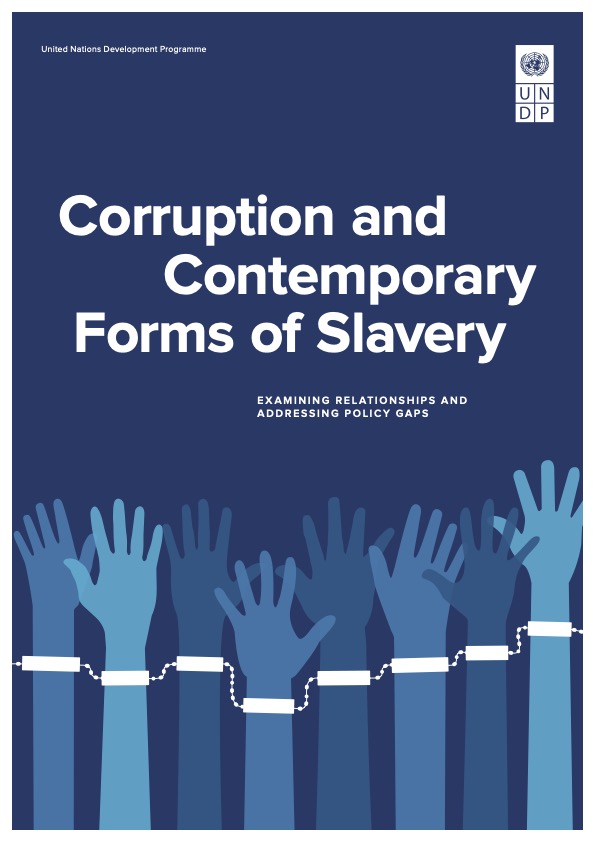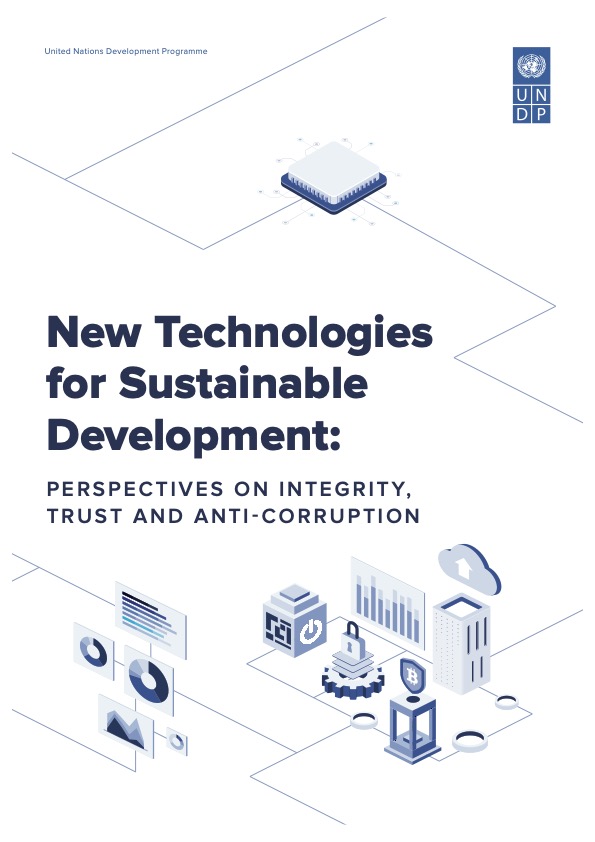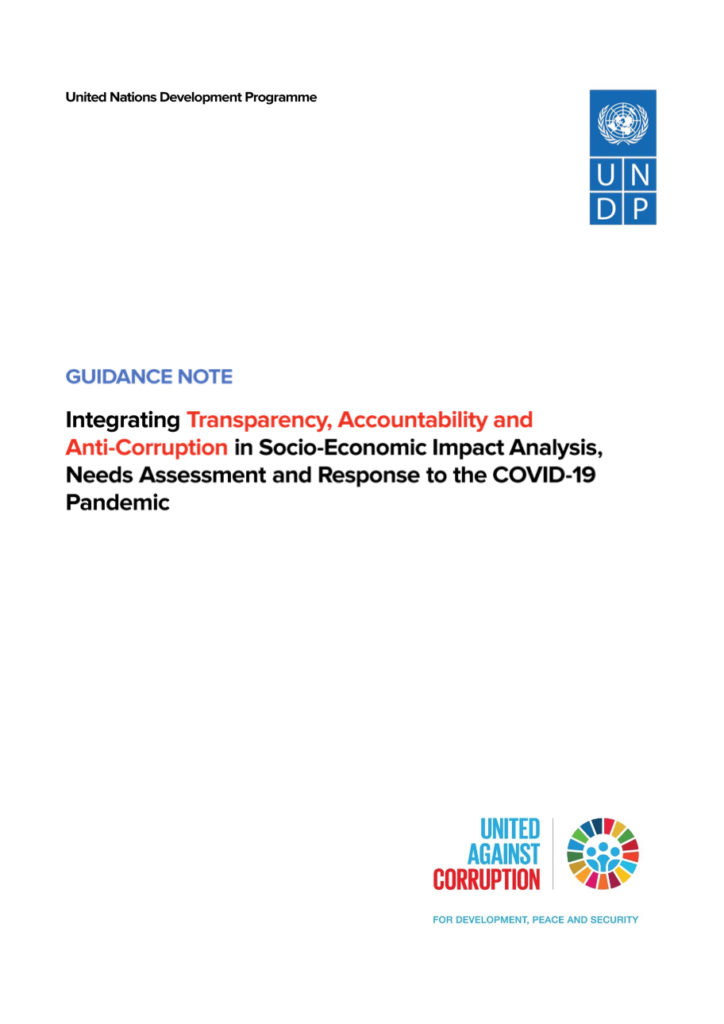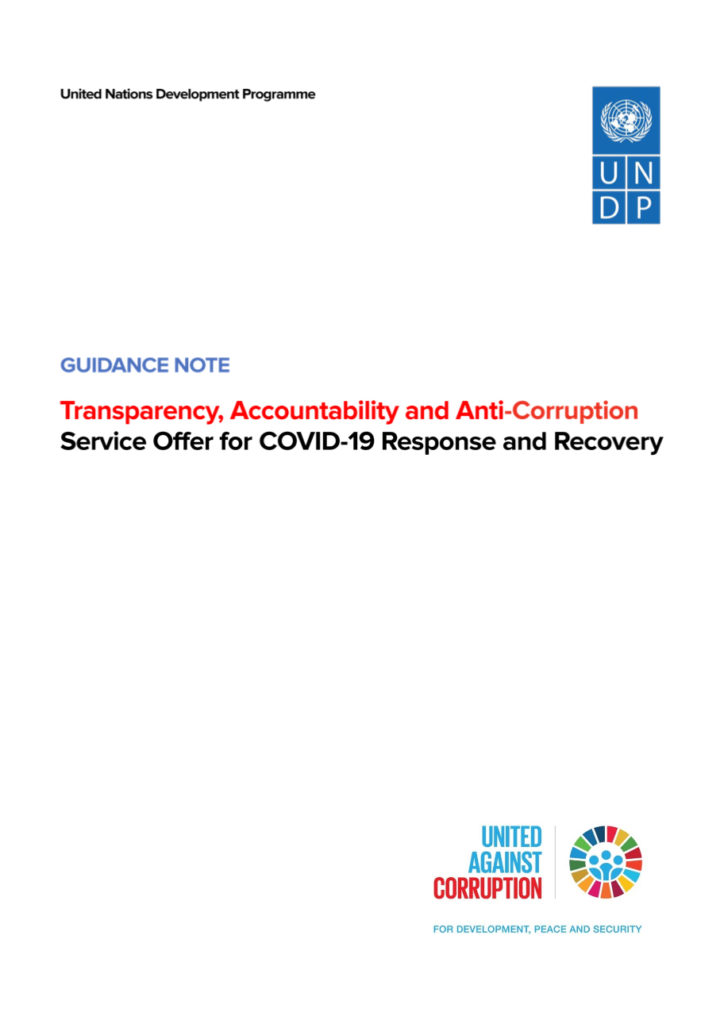
View the publication here
Corruption is an underlying cause of and a facilitating tool for practices arising from contemporary forms of slavery; it is essential to creating the conditions for a low-cost, low-risk, high-profit illicit trade in vulnerable individuals. Yet, corruption and contemporary forms of slavery tend to be dealt with in isolation, with no international instrument that focuses on the important link between them, and a lack of systemic data collection efforts on corruption in contemporary forms of slavery. This has significant negative implications on human rights and gender equality, as estimates suggest that 40 million people—71% of whom are women and girls—are trapped in contemporary forms of slavery, with 24.9 million in forced labour and 15.4 million in forced marriages. In addition, with the COVID-19 pandemic and its impact on the economic and labour markets and on people's lives and livelihoods, the risks of corruption and vulnerabilities to enslavement have increased.
This study therefore explores the linkages between corruption and contemporary forms of slavery, including from a gendered perspective, and offers recommendations for the international community, governments, civil society and the private sector to develop effective strategies to prevent and address them.



